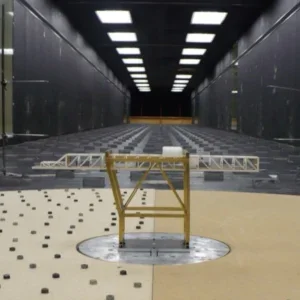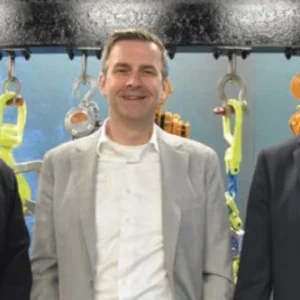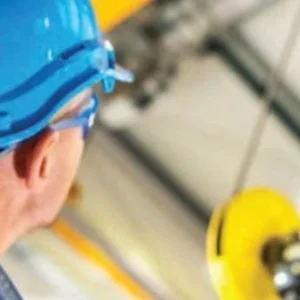The lifting operation itself took four hours to complete. The tunnel eye will guide the tunnel boring machine (TBM) as it makes the first cut on the start of its journey beneath the River Thames, towards Greenwich and is a key activity ahead of its launch.
The tandem lift was undertaken using a 100-ton mobile crane which picked up the bottom of the tunnel eye, and a top crane weighing 250 tons that lifted the top of the tunnel eye. The cranes operated together to lift and rotate the steel tunnel eye.
The 100-ton crane holds the bottom of the tunnel eye off the ground, and the large crane starts the rotation process.
When the tunnel eye is vertical the chains attached to the 100-ton crane were removed and the larger crane moved the tunnel eye into position, lifting it down into the shaft.
The tunnel eye is in its final location. A surveyor checks the tunnel eye to make sure that the levels are correct to guide the TBM in the right direction.
Now in position, the tunnel eye has been secured with steel ties and concreted into position.
The spokes, which help to maintain the circular shape of the eye, will be removed prior to the TBM being moved into position in front of the tunnel eye.
After tunnelling to Greenwich, the TBM will be turned around in the rotation chamber before making its journey back to Silvertown.






